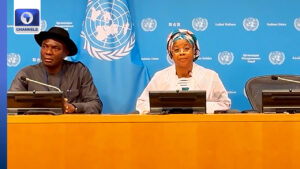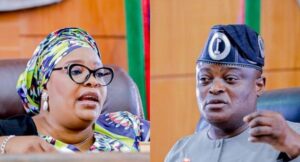The World Health Organisation has said there were a total of 591 Ebola cases, 543 of which are confirmed, and 357 deaths, 309 of which are confirmed, in the Democratic Republic of the Congo.
It said some aspects of the response to the Ebola outbreak had been temporarily disrupted in Beni and Butembo following elections-related violence and general strikes.
The United Nations Office for the Coordination of Humanitarian Affairs reported that the UN and partners working in DRC have reaffirmed their commitment to stay and deliver in support of the Ministry of Health’s fight against the Ebola epidemic in North Kivu and Ituri provinces.
WHO explained that its officials remained in place, ready to resume critical field work, including vaccinations, contact tracing, and following up on alerts of potential new cases as soon as security permits.
The UN health agency said there had been no interruption in the response elsewhere.
Following the scale up in the response since August, substantial progress has been made in beating back the disease in many areas, including the recent decrease in new cases in Beni and the vaccination of over 53,500 persons to protect against the disease.
WHO said partners had also made progress in gaining community acceptance, which was critical to the response, but remained fragile.
The UN agency called on everyone to protect health facilities and provide access for responders to the affected populations so as to stop the Ebola outbreak.
The population must also have safe access to transit and treatment centers that save lives and stop the spread of Ebola, WHO added.
Protests have reportedly erupted in three key towns – Beni, Butembo and Yumbi – following the Government’s decision to postpone elections there, amid fears of Ebola transmission, and an uptick in violence by armed groups.
In Beni, protests at Government buildings spilled into an Ebola transit centre, causing panic among both those seeking services as well as health workers.
Tedros Ghebreyesus, the Director General of WHO, warned that it would be a “tragedy” for the local population, if the disease were to come back, as they have “already suffered too much.”
“Working side by side with DRC health authorities and partners, the priority is to end the Ebola outbreak,” he said, adding: “We cannot afford to take a step back at this critical point in the response.”
NAN.








